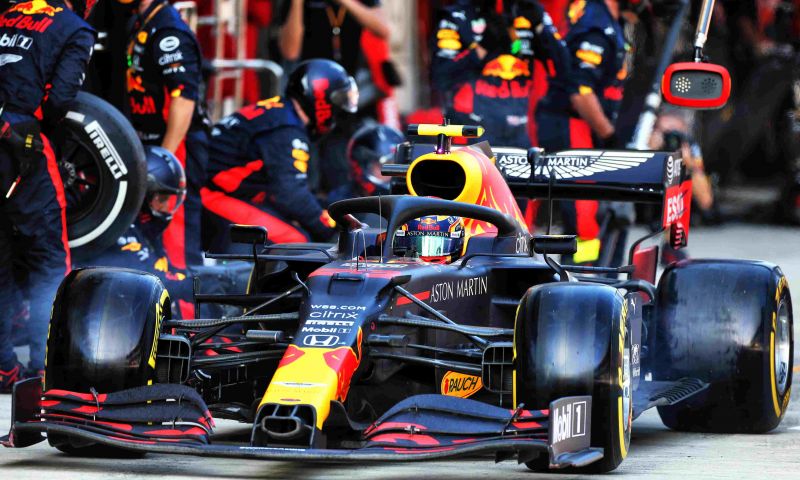Deadline approaching for Red Bull: Which engine will Verstappen have in 2022?
F1 News

Red Bull Racing wanted clarity about their 2022 engine at the end of November and that deadline is fast approaching. Still nothing has been announced by Red Bull, so we list all possible options one more time.
Still, working as a customer team?
Red Bull and all current engine suppliers don't seem to want this option, but it remains the easiest option for Red Bull. Buy an engine from Mercedes, Ferrari or Renault and you are at least out of the fire for 2022. Although Red Bull and the suppliers object to this option.
Red Bull want to remain a factory team and since all these suppliers already have their own team, the engine from this supplier will never fully meet Red Bull's requirements. Also, Toto Wolff has already indicated that he does not want to supply engines to Red Bull and Ferrari and Renault are also not eager to help Red Bull.
Red Bull has to do it on their own
Helmut Marko previously announced that progress was being made in the talks with Honda. Red Bull actually want to take over that project, so that it remains a factory team. However, Red Bull are trying everything to minimize costs. In 2023, the development of the engines will be frozen, but in 2022 Red Bull will have to compete not only with the car but also with the engine against giants Mercedes and Ferrari. Does Dietrich Mateshitz have the money for that?
It doesn't seem like it, because Red Bull has already tried to bring forward that stop on development. Now, according to Marko, Red Bull are trying to convince Honda to help with the development of the 2022 engine, to bridge the gap to the development freeze for Red Bull.
However, there are also other parties that Red Bull can turn to take on the development of the Honda engine. Mugen, Ilmor, Cosworth and AVL are all listed as parties to help Red Bull in that development. The engine then becomes a "white label" and can then be used by several small teams.
Mugen
According to The Race, one of the parties with a chance to further develop the 2021 Honda engine is Mugen. This company has a strong connection with Honda. It was founded in 1973 by Hirotoshi Honda, son of the founder of Honda. However, the Japanese carmaker has no control over the company, but the two have historically been very closely linked. In the past, Mugen has supplied engines to Jordan, Tyrell, Footwork, Lotus and Ligier.
Ilmor
Another candidate is Ilmor. Ilmor Engineering was founded in the 1980s by two ex-Cosworth engineers, Mario Illien and Paul Morgan. Ilmor was the company behind the Mercedes F1 engines supplied to McLaren around 1995 and designed and built the 1998 and '99 world title-winning V10s. Ilmor is currently building Chevrolet's IndyCar engines.
Cosworth
Cosworth, like Ilmor, is close to the base of Red Bull's Milton Keynes and is arguably the most famous independent engine supplier in motorsport history, with its DFV design as the dominant engine in F1 for more than a decade after its introduction in 1967. The company currently supplies a hybrid engine for British Touring Cars.
AVL
AVL is based in Graz, close to Red Bull's base. The two companies have collaborated on engineering projects in the past, but AVL also counts Ferrari among their own clientele, as well as several major OEM car manufacturers. AVL has the specialized engine dynos needed for F1 testing and Red Bull have tested Renault engines there in the past.
What does Formula 1 want?
Formula 1 itself will do everything it can to help Red Bull. Not only can F1 not lose such a big team, but it also has a problem itself. The departure of Honda has shown how vulnerable Formula 1 is. Private teams depend on engine suppliers and how badly they want to stay in F1.
The call for a cheaper engine is therefore getting bigger and bigger for 2026 so that more parties could be interested in F1 and could also get in later. For now, that is not a solution for Red Bull, but F1 will want to help to keep Honda's project from disappearing. It is a competitive engine that can be used by different teams until 2026.
This article was written and originally published by [Tim Kraaij] on the Dutch edition of GPblog.com.

